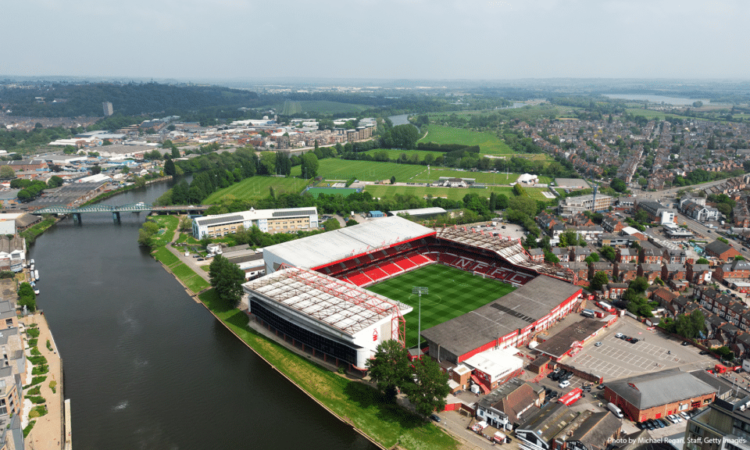
Sarah Hall explores what ordinary places like the constituency of Gedling – a village on the periphery of Nottingham – can tell us about the general election and the wider challenges facing the UK economy.
I’ve recently spent time meeting Evan Davis and his BBC Radio 4 PM team in the Nottinghamshire constituency of Gedling. Selected as one of the constituencies to be visited by the programme over the course of the election campaign, Gedling is also one of UKICE’s ‘seats to watch’, despite having a far lower profile than many electoral battlegrounds.
Indeed, in many ways Gedling is characterised as an ordinary place. Gedling has a population of 95,000 and is named after what was once a village parish four miles east of Nottingham. It takes in relatively affluent north-eastern Nottingham suburbs before stretching north and east across more rural areas to constituencies that are far more high profile. To the east is Robert Jenrick’s Newark and Sherwood seat whilst Ashfield is to the north, where Lee Anderson is the first and currently only Reform UK MP having defected from the Conservatives.
However, it is precisely ordinary places like Gedling that reveal one of the key issues facing the UK post-election. While Gedling is in no way left behind, its economy is stagnating due to the productivity gap between London and Nottingham – the city on which it relies for jobs.
Gedling was won by Labour for the first time from the Conservatives in 1997, and stayed that way until the Conservatives won it back in 2019. However, the 2015 and 2017 results were very marginal with Labour holding it by 9% and then 1.5% respectively. It is expected to go Labour this time round with most pollsters predicting a relatively large majority.
Gedling is a former mining area – the country park where I met Evan Davis is built on the slag heap for the former mine which closed in 1991. However, Gedling is not a red wall seat as typifies former coal mining seats further north. It is more affluent than that – falling in the second least deprived fifth of parliamentary constituencies. And it is the seemingly ordinary economics of Gedling that tell an important story that we’ve heard a lot about in the election campaign so far – growth.
Following the mine closure, Gedling, along with neighbouring Nottingham, moved to become an increasingly service dominated economy. In many ways, Nottingham was a relative success story in the early phases of this, attracting major employers such as the headquarters of the high street chain Boots.
As a result, on measures such as employment and inactivity rates, at the local authority level Gedling is very close to the national average. Its unemployment rate is 4.1%, slightly above the national average of 3.7%. 22.1% of 16-64 years olds are not economically active in Gedling, again only slightly higher than the national average of 21%.
However, it has around 4% more public service employees than the national average and rates of part time work are 7% above the national average. This is hardly surprising given that it now largely serves as a commuter belt for Nottingham which has two large universities and two large hospitals.
However, it is hard to say that Gedling is booming. There are concerns that would be common across other ordinary commuter towns – what has happened to the town centre? Is it too reliant on Nottingham? And are there good jobs here? In this sense, the story of Gedling is the story of Nottingham, on which it relies for jobs. Which in turn reflects the flatlining of the UK economy.
Cities like Nottingham, outside London, matter economically because it is widely agreed that is their relatively low productivity rates compared to international comparators which holds the key to understanding the UK’s longstanding productivity problems, which are acting as a break on growth. Addressing this is an important challenge for the next government, as delivering greater economic growth will make it easier to spend much needed money on public services, given both main parties have ruled out any significant tax rises.
Nottingham is similar in size to Valencia, Rotterdam and Dortmund. However, following deindustrialisation, it has not managed to attract prolonged investment in high value, often tradeable services that dominate London’s economy. It does host regional and national headquarters with the energy firm E.ON and the gaming company Games Workshop being high profile employers in the city. But as the figures for Gedling show, it continues to disproportionately rely on public sector employment. And despite having two universities, graduate retention is a problem.
Whilst there is much agreement that addressing the productivity issues of cities like Nottingham and their commuter belts like Gedling is important, it is less clear on how this might be best achieved. Transport, infrastructure and attracting higher skilled jobs within the local labour market will be key. But until this happens, ordinary places like Gedling are where the relatively stagnant nature of the UK economy are found.
By Professor Sarah Hall, Deputy Director, UK in a Changing Europe.






